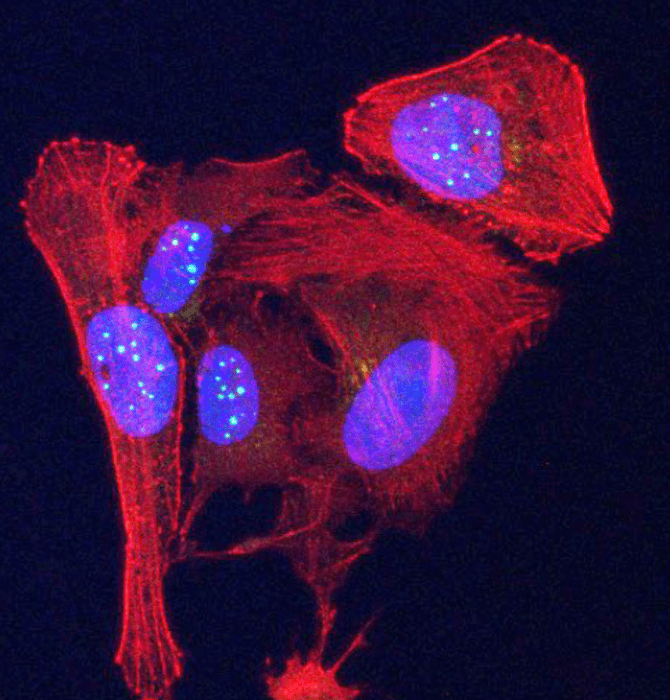Telomeres – the protective caps at the tips of chromosomes – can encode two proteins, something that was previously thought impossible, new research has suggested. The discovery of genetic information coding for these proteins, one of which is elevated in some human cancers, could have huge ramifications for the fields of health, medicine, and cell biology.
“Discovering that telomeres encode two novel signaling proteins will change our understanding of cancer, aging, and how cells communicate with other cells,” study author Jack Griffith, the Kenan Distinguished Professor of Microbiology and Immunology at the University of North Carolina at Chapel Hill, said in a statement.
“Based on our research, we think simple blood tests for these proteins could provide a valuable screen for certain cancers and other human diseases,” Griffith, who is also a member of the UNC Lineberger Comprehensive Cancer Center, added. “These tests also could provide a measure of ‘telomere health,’ because we know telomeres shorten with age.”
Telomeres are regions of repetitive DNA sequences found at the ends of chromosomes that play an important part in the aging process. When a cell divides, telomeres shorten, eventually becoming so stubby that division ceases and the cell dies. This mechanism ensures that cells cannot build up enough mutations over their lifespan to become problematic, and is a neat defense against cancer, which is characterized by rapid cell division.
The vast majority of cancers, however, have worked a way around this and can exploit an enzyme to maintain the length of telomeres, enabling them to divide and accumulate mutations while avoiding cell death.
Due to their monotonous DNA sequence – which consists of endless repeats of TTAGGG bases – scientists had assumed that telomeres were incapable of producing proteins. However, this new research suggests otherwise.
In a series of experiments, the researchers demonstrated that telomeric DNA is actually capable of producing two small proteins: VR (valine-arginine) and GL (glycine-leucine). Both are signaling proteins, meaning they are responsible for a whole host of biologically important reactions in cells.
The protein VR (green spheres) can be seen accumulating in nuclei (blue ovals) in human osteosarcoma cancer cells. Image credit: Griffith Lab, UNC Lineberger
When the team chemically synthesized VR and GL, they found that the former is present in some human cancer cells as well as in people with telomere-related diseases, meaning the discovery could be illuminating for their research, plus future studies on aging.
“We think it’s possible that as we age, the amount of VR and GL in our blood will steadily rise, potentially providing a new biomarker for biological age as contrasted to chronological age,” said Taghreed Al-Turki, a postdoctoral researcher in the Griffith lab. “We think inflammation may also trigger the production of these proteins.”
“Many questions remain to be answered, but our biggest priority now is developing a simple blood test for these proteins. This could inform us of our biological age and also provide warnings of issues, such as cancer or inflammation,” Griffith concluded.
The findings are published in Proceedings of the National Academy of Sciences.
Source Link: Telomeres Found To Encode Two Proteins, Potentially Transforming Cancer Research
